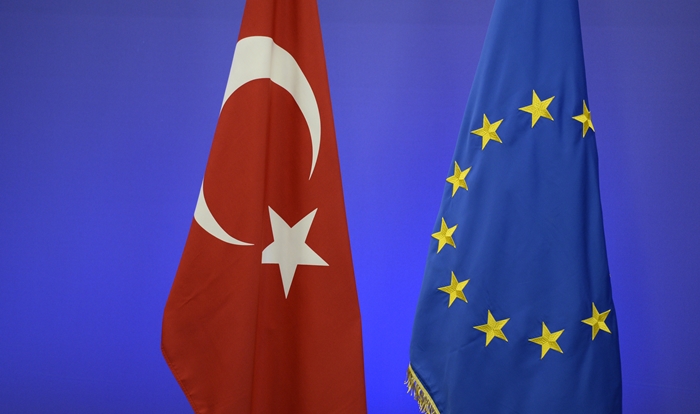The oppressive regime of Turkish President Recep Tayyip Erdoğan, who has locked up a large number of opposition politicians, journalists, activists and human rights defenders during his 19-year rule, has been used by the European Union as an excuse to keep the country out of their bloc, an Economist article argued on Friday.
Membership in the EU wouldn’t be on the table for Turkey even if Erdoğan’s ruling Justice and Development Party (AKP) were voted out of office in the next general election scheduled to take place in 2023, the article said, since many of the bloc’s countries would regard the prospect of such a large Muslim-majority country joining their club “with horror.”
According to the article, although the EU’s reports on Turkey’s progress towards accession once made the front pages of Turkish newspapers, the bloc is now a “spent political force” in Turkey, because it cannot say that a democratic Turkey can expect to join them in the future.
Perhaps the possibility of Turkey joining the EU was never there to begin with, taking into account the European leaders’ insistence on an “open-ended process” since the start of the membership talks in 2005, the article said.
It also pointed out that both Ankara and the EU decided to “do nothing” to contribute to the accession process while they both refrain from breaking off negotiations completely because the standstill serves for the benefit of both parties by allowing Europe to not push forward a process it doesn’t believe in and Erdoğan to not sign up to reforms that would weaken his control over Turkey’s economy and institutions.
What now drives the relationship between the two sides is a refugee deal made in 2016, as part of which Brussels allocated 6 billion euros ($7.1 billion) and made a vague promise of visa-free travel to Europe for Turks in exchange for Turkey hosting what now amounts to more than 4 million migrants — 3.7 million of them from war-torn Syria.
Because of the accord, the EU lost the leverage it once had over Erdoğan, the article claims. Although the bloc speaks up from time to time about the grave human rights violations taking place in Turkey under Erdoğan’s regime, the president disregards them.
The deal is “sure to come under fire” in Turkey in the near future, according to the Economist article, as a result of the rising anti-refugee sentiment in the country, while some in Europe now propose extending it to Afghans, an idea Ankara has been unwilling to accept so far.
Erdoğan, who has been under intense political pressure at home not to accept migrants who might come from Afghanistan in response to the Taliban’s rise, previously stated that Turkey was now home to roughly 5 million migrants of various statuses and could not accept any more.
“We cannot handle an additional burden of migration originating from Syria or Afghanistan,” the president said.
According to Turkish media reports, between 500 and 1,000 Afghans are estimated to have arrived in Turkey each day since early July.
Ankara is building a wall along its eastern border with Iran to keep out Afghans trying to use the route to enter Europe.


